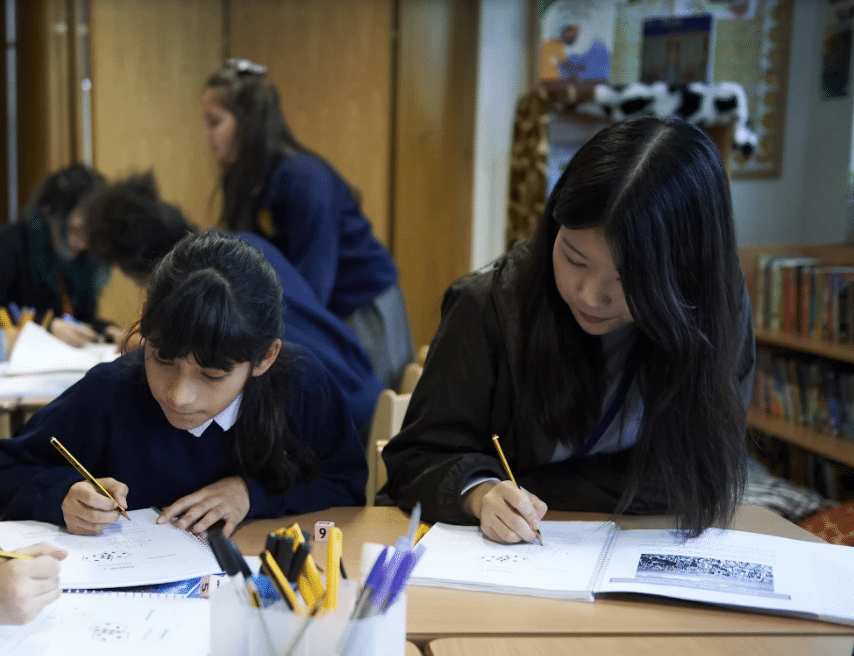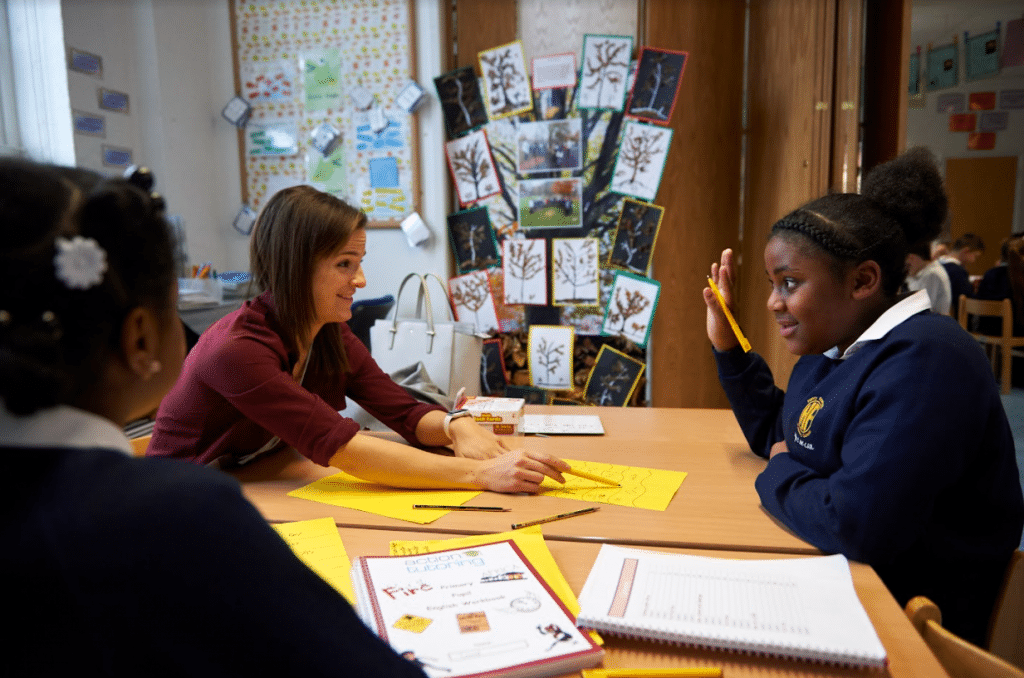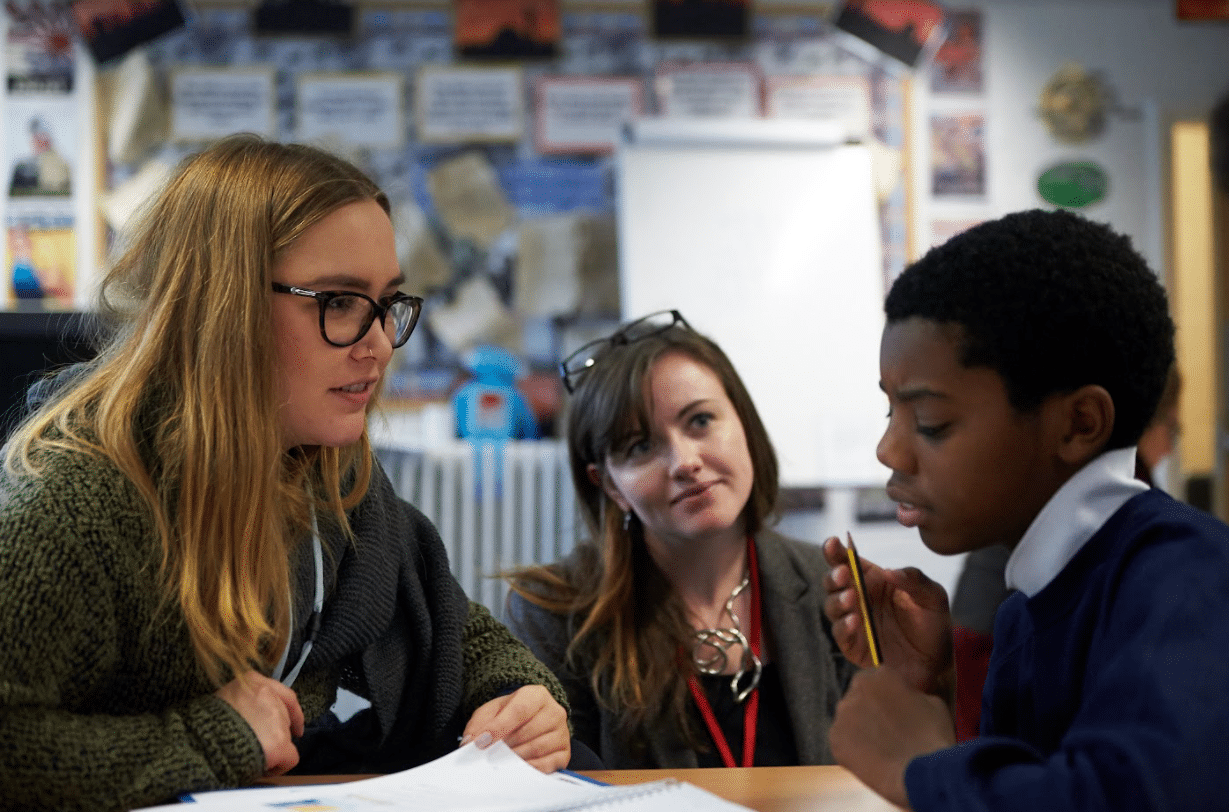Struggling to engage your pupils in tutoring sessions? This guide will help!
At Action Tutoring we believe every pupil has the potential to achieve academic success under a supportive environment, using the right tools and resources.
We are proud to have such amazing volunteer tutors, who are passionate about helping disadvantaged pupils reach their full potential.
When they sign up to a programme, many of our volunteers are tutoring or working with children for the first time. With the help of our Programme Coordinators and the workbooks we provide, they are equipped to make tutoring sessions interesting and engaging.
We want to make sure that all our volunteers feel confident before starting their programme. For this reason, we’d like to share a few tips that help pupils to be more engaged during your tutoring sessions.

Shy pupils
How do you engage shy pupils? Some children take time to get comfortable talking to a stranger. As a tutor, it’s great to put in some extra effort by asking them questions and giving them some information about you. This will encourage them to feel more comfortable sharing with you and speaking about themselves. Persevere, and look for small wins each week.
Read more: How you can support your pupils’ mental health as a tutor

Pupils with low self-confidence
You can start by adjusting what you consider ‘good work’ to the starting point of your pupil’s ability. For example, writing a full paragraph with correct punctuation will not get them a grade 5 in GCSE but it may well be a big step forward for them personally.
At the end of the session, explicitly show pupils the progress that they have made. Don’t forget to show them what they can now do that they couldn’t at the start of the session so that they leave with a sense of achievement!
When working with pupils who lack confidence in your subject, make sure to praise effort over correct answers. If you have a couple of minutes, you can watch the video by Carol Dweck’s study into growth mindsets to see the impact that praising effort can have on pupils.

Pupils who dislike the subject
Years of feeling left behind in the subject have lowered self-confidence and could have even built up resentment about the subject itself. Not liking maths or English is a regular issue faced by the pupils we work with.
Did you really enjoy maths when you were a pupil yourself? Either way, now as a tutor it’s essential to keep in mind that you are not going to completely transform a pupil’s ability in a few weeks of tutoring.
Nevertheless, you can greatly influence their attitude towards the subject. Empathy and praise are the two key qualities to remember when you want to with a pupil who doesn’t naturally like your subject.

Pupils don’t understand your explanations
Not everyone learns the same way. Likewise, not everyone teaches the same way. Therefore, you may find that you need to explain methods in different ways in order for a pupil to absorb what you are trying to convey.
If your pupil is struggling to understand your explanations, the first step for a tutor would be to simplify the language and remove any technical terms where possible.
Then, you can use real life examples that pupils can relate to and can help. In maths, it is always good practice to relate the maths back to something real. For example, percentages can be about making money, or fractions about food.
In English, you’ll likely find it is individual words that often are more confusing than whole texts. Get the pupil to explain what they know about the context and what language they would use to describe the scene/emotion.
If one of your pupils is secure in the concept, you can ask them to explain it to their partner who is less sure. This will reinforce their learning, as well as perhaps finding a new way to explain to the other pupil in the group!

Pupils using their mobile phones during the session
A recent study has suggested that students check their phone on average every 8.6 minutes. Removing mobile phones is a good way to avoid distractions so that pupils can focus on the tutor and get the most out of the session.
There may be a legitimate reason for a pupil needing to use their phone e.g. texting a parent or guardian to remind them they will be home a bit later, or to arrange for a younger sibling to be picked up.
Generally, pupils will request to use their phone in situations like these. Pupils may say they need their phone to use the calculator, but your Programme Coordinator will be able to step in and provide a spare one in this situation.
Lastly, if you are worried that your pupil is uncharacteristically disengaging, then please let your Programme Coordinator know. They can pass it on to the school, who may wish to follow up to see if there are any serious reasons for the change in their behaviour.
Read more: How tutors can support pupils with dyslexia
Volunteering with us can help you learn how to better interact with pupils and give you access to resources that can improve your communication and tutoring skills.
During my placement with Action Tutoring, I learnt how important other factors; such as enthusiasm, body-language and confidence; are to engaging and building rapport with children.
Elsie, University student in Liverpool
Are you ready to join our inspiring volunteering group? We’d love to hear from you!
Follow us on our social media pages and stay up to date with the latest Action Tutoring news!



